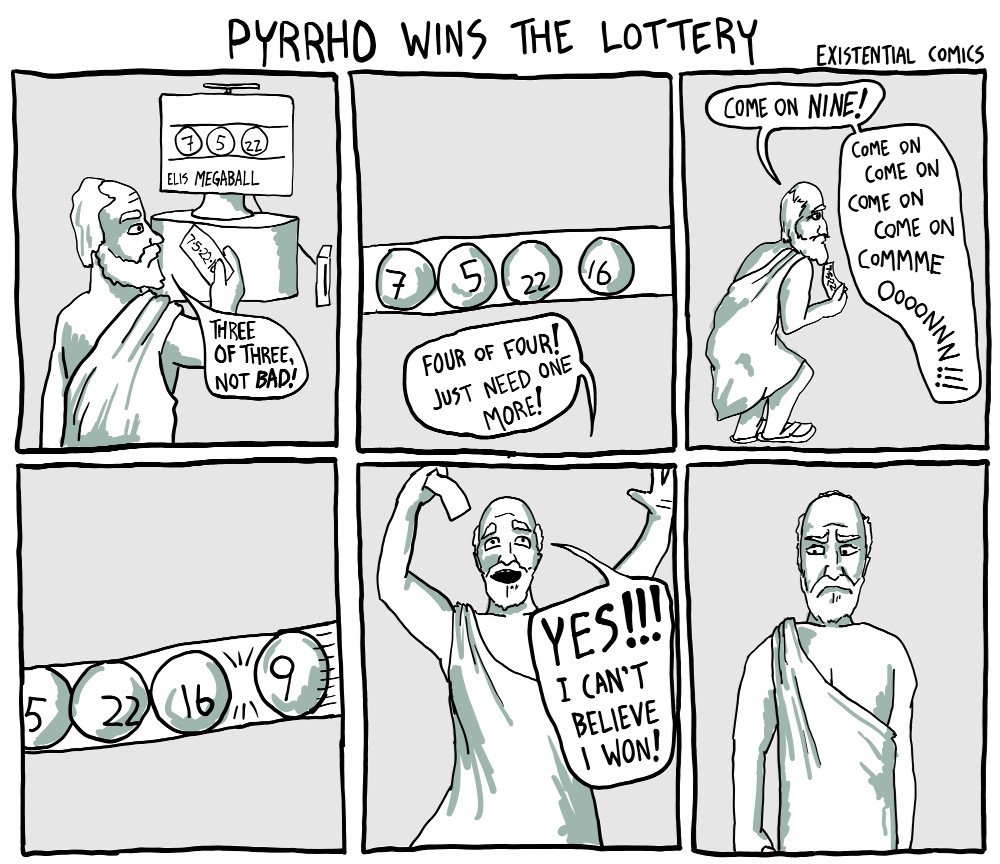Matthew Bennett
Section 6
Blog Post 1
No One Knows Anything
You may
think that you know all kinds of things in life. For example, you’re reading
this right now. Think about why it is that you know you are actually reading
this right now and not just imagining or dreaming that you are. This is a small example of the
kind of stance that sceptic philosophers took on life.
Everything
can be questioned, everything doubted. The best thing for a person to do is to
keep an open mind. Having an open mind and not committing to anything leaves
you in the position to not be disappointed. This was the main purpose behind
the teachings of Scepticism, a form of philosophy that was popular for
centuries throughout Ancient Greece and Rome. The most famous and probably the
most extreme sceptic of all time was Pyrrho.
Pyrrho led
an odd life and was known for living out his skepticism in extraordinary ways.
He approached life saying that we can’t completely trust our senses because
sometimes they mislead us. They can mislead us by making us think we saw
something in the dark when it turned out to be something completely different, or
by making us believe that we heard something when it was just the wind blowing
outside. It is because of this belief that Pyrrho decided to never trust his
senses. He never completely ruled them out, but he was sure to always keep an
open mind about them.
With his
beliefs, one would think that he must’ve been extremely lucky to live as long
as he did. Most people believe that he must have had a large group of friends,
who were not sceptics, around to keep him from having any accidents. He was
constantly challenging anything and everything around him. For example, if a
pack of dogs were to be running towards him he would not be afraid. He would
think that even though they were running straight for him, while barking and
growling, that it wouldn’t necessarily mean they will attack him, and even if
they do that it won’t necessarily hurt. It’s hard to imagine being friends with
someone who would always face situations like this and be willing to always
challenge them.
Pyrrho was
similar to Socrates because he never wrote anything down. Most of what we know
about him comes from other people that recorded his beliefs and life events
centuries after his death. Some people argue that stories written about him
were made up to mock his sceptic philosophy. One of the most notable stories
involved him sailing through one of the worst storms anyone in that time period
had ever witnessed. Everyone on board was completely terrified except for
Pyrrho. Since he believed that appearances were often deceiving he wasn’t able
to be completely sure that any harm would come of the storm. With this thought
process he was able to remain completely calm throughout the entire storm. He
believed that there was no reason to get worked up about anything because
everything was just a matter of opinion.
Pyrrho was
able to summarize his whole philosophy into three questions that anyone who
wants to be happy should ask. “What are things really like?” “What attitude
should we adopt to them?” “What will happen to someone who does adopt that
attitude?” His own answers to those questions were first, we can’t ever know
what the world is really like because it is beyond us. Second, we shouldn’t
commit to any view because we can’t know anything for sure. We need to suspend
all of our judgement and live our lives uncommitted. Third, if you follow his
teachings you will start off speechless because you won’t know what to say, and
eventually you will be free from any and all worry. That’s the best that anyone
can hope for in life.

Pyrrho's skepticism really was self-defeating, insofar as we all need to believe something... and would be vastly disappointed not to be able to believe we'd won the lottery.
ReplyDeleteIt would be useful for you to compare P's skepticism to modern versions (Descartes and after).